A Rosé Veal enterprise has recently started on John McKinley’s farm near Ballycastle, Co Antrim.
The farm traditionally had sucklers and sheep, although dairy-beef has gradually become the main farming activity. Dairy-bred, Angus-sired steers are run on the farm and Wagyu cattle have been introduced in recent years.
In February 2024, another dairy-beef enterprise started when the first calves to be finished for Rosé Veal arrived on the farm.
The calves are all dairy-bred bulls, which are bought from rearing houses run by Linden Foods. The Dungannon-based factory is the outlet for both the Rosé Veal and Wagyu cattle.
“For Rosé Veal, the calves are finished from eight months old, and they must be killed before they are 12 months of age,” John explained.
“They come to me at three months of age. They are off milk, fully vaccinated and eating between 2kg and 4kg of meal a day at that stage,” he said.
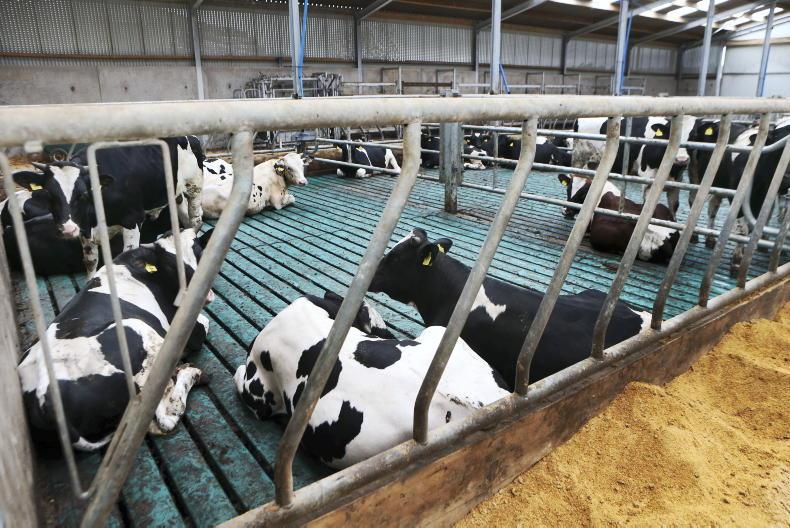
The Rosé Veal calves are kept indoors on rubber slats until finish. \ Houston Green
Feeding
There are 127 calves being finished for Rosé Veal on the McKinley farm at present. The calves are kept indoors on rubber slats until finish and are only offered meal.
“I am feeding a mix which includes a sugar beet nut. That’s where their fibre is coming from, so they get no other forage,” John said. On most Rosé Veal units, calves are usually offered wheat straw as a fibre source.
“Aside from the price of it, I didn’t want to feed straw because I have a new bubbler aeration system installed and I didn’t want any straw getting into the tank,” John explained.
Cattle are weighed regularly on the farm and the average growth rate among the Rosé Veal calves at the latest weighing was 1.63kg/day.
John said the finished price per kg is agreed before the calves arrive on his farm, although the age and weights at which the calves are slaughtered can vary.
“It depends on demand. If the factory needs calves for an order, then I will accommodate them by sending lighter ones, but I would ideally like to finish them at the heaviest weight possible.
“Killing them at a 190kg carcase or so takes them into £850, but if I can get them to 250kg then its upwards of £1,100,” he said.
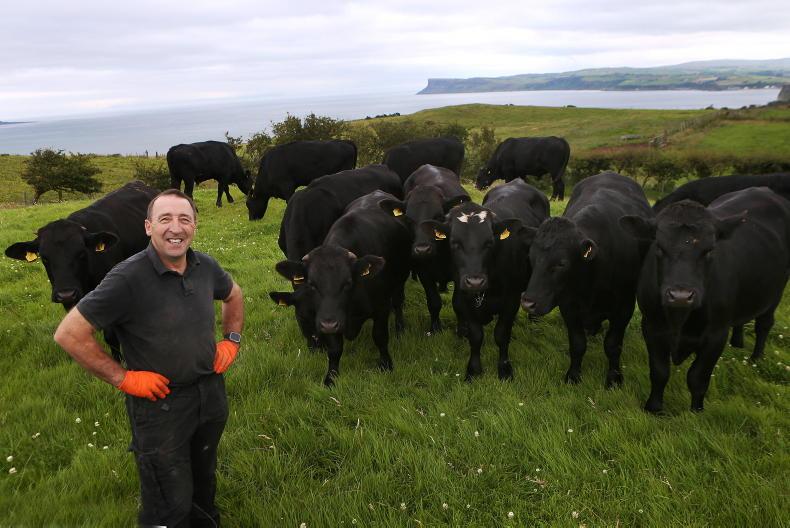
John McKinley with dairy-bred Angus steers on his farm at the north coast. \ Houston Green
Future
With the first batch of Rosé Veal calves being finished at present, John is pleased with the new enterprise and he plans to re-stock.
However, he is considering having a smaller number of calves next time round and he wants to keep running his conventional dairy-beef system with Angus steers.
“It’s not the buying of them, it’s the budgeting for the feeding. The Rosé Veal calves are eating a tonne a day and they are here for six months or more,” he said.
John said the other factor is that, unlike the Angus steers, the Rosé Veal calves do not utilise the farm’s land base, as they are never grazed or offered silage.
A Rosé Veal enterprise has recently started on John McKinley’s farm near Ballycastle, Co Antrim.
The farm traditionally had sucklers and sheep, although dairy-beef has gradually become the main farming activity. Dairy-bred, Angus-sired steers are run on the farm and Wagyu cattle have been introduced in recent years.
In February 2024, another dairy-beef enterprise started when the first calves to be finished for Rosé Veal arrived on the farm.
The calves are all dairy-bred bulls, which are bought from rearing houses run by Linden Foods. The Dungannon-based factory is the outlet for both the Rosé Veal and Wagyu cattle.
“For Rosé Veal, the calves are finished from eight months old, and they must be killed before they are 12 months of age,” John explained.
“They come to me at three months of age. They are off milk, fully vaccinated and eating between 2kg and 4kg of meal a day at that stage,” he said.

The Rosé Veal calves are kept indoors on rubber slats until finish. \ Houston Green
Feeding
There are 127 calves being finished for Rosé Veal on the McKinley farm at present. The calves are kept indoors on rubber slats until finish and are only offered meal.
“I am feeding a mix which includes a sugar beet nut. That’s where their fibre is coming from, so they get no other forage,” John said. On most Rosé Veal units, calves are usually offered wheat straw as a fibre source.
“Aside from the price of it, I didn’t want to feed straw because I have a new bubbler aeration system installed and I didn’t want any straw getting into the tank,” John explained.
Cattle are weighed regularly on the farm and the average growth rate among the Rosé Veal calves at the latest weighing was 1.63kg/day.
John said the finished price per kg is agreed before the calves arrive on his farm, although the age and weights at which the calves are slaughtered can vary.
“It depends on demand. If the factory needs calves for an order, then I will accommodate them by sending lighter ones, but I would ideally like to finish them at the heaviest weight possible.
“Killing them at a 190kg carcase or so takes them into £850, but if I can get them to 250kg then its upwards of £1,100,” he said.

John McKinley with dairy-bred Angus steers on his farm at the north coast. \ Houston Green
Future
With the first batch of Rosé Veal calves being finished at present, John is pleased with the new enterprise and he plans to re-stock.
However, he is considering having a smaller number of calves next time round and he wants to keep running his conventional dairy-beef system with Angus steers.
“It’s not the buying of them, it’s the budgeting for the feeding. The Rosé Veal calves are eating a tonne a day and they are here for six months or more,” he said.
John said the other factor is that, unlike the Angus steers, the Rosé Veal calves do not utilise the farm’s land base, as they are never grazed or offered silage.







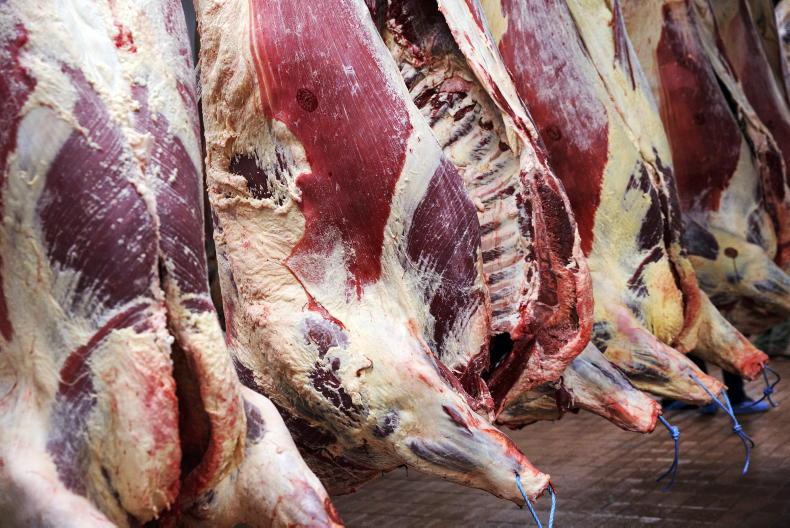

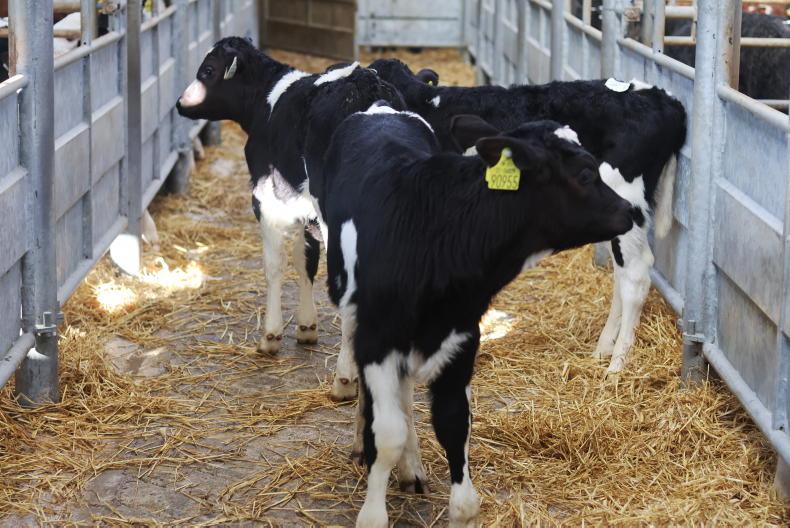
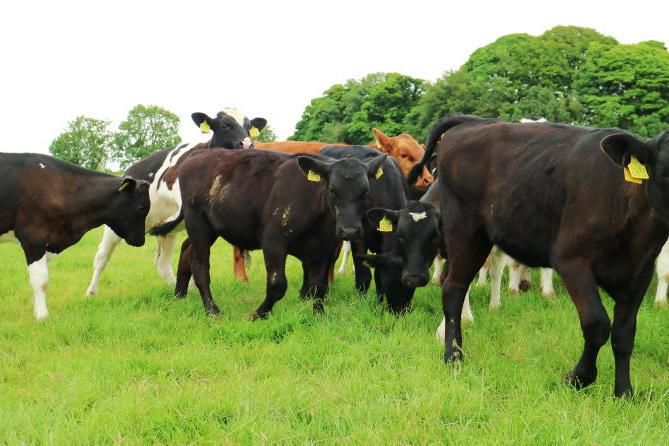
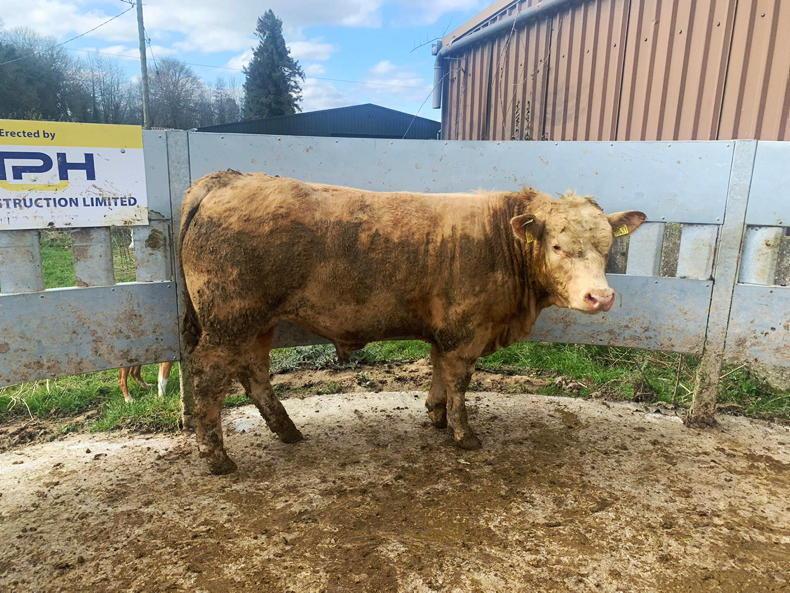
SHARING OPTIONS